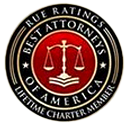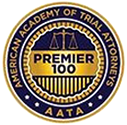Car accidents are often far more complicated than you might think. In many cases, it is not immediately clear who was responsible for the accident itself. In other cases, the precise scope of the victim’s financial losses–especially as it relates to the long-term impact of their injuries–may be difficult to quantify. One way such questions can be answered in a car accident trial is through the use of expert witnesses.
What Is an Expert Witness?
You can broadly divide witnesses in a civil trial into two groups. The first are eyewitnesses. These are witnesses who testify as to their knowledge of an event, such as a car accident.
The second group consists of what are known as expert witnesses. These witnesses are not there to testify as to the facts–what they saw or experienced personally–but rather, to offer opinions based on their analysis of the facts. To that end, Pennsylvania court rules define an expert witness as “an expert by knowledge, skill, experience, training, or education.”
Not every case requires expert witnesses. And not every expert witness offered by a plaintiff or defendant in a car accident lawsuit will necessarily be allowed to testify. The trial judge must first determine if the proposed expert’s testimony is credible and would benefit the trial. In making this determination, the judge must decide if the proposed expert meets the following three requirements:
- The expert has “scientific, technical, or other specialized knowledge” that is beyond that of the average layperson.
- The expert’s knowledge will help the trier of fact–a jury, or a judge sitting alone–understand the evidence in the case or decide a factual dispute relevant to the case.
- The expert’s opinions are based on a methodology that is generally accepted within their field.
In short, an expert witness can offer specialized testimony that explains a technical issue that the typical juror (or judge) cannot be expected to comprehend based on their own life experience and common sense.
So how does expert testimony benefit a car accident trial? Here are a few common scenarios.
Accident Reconstruction Expert Witnesses
Now, some car accidents have fairly simple causes that do not require an expert’s understanding.
For example, if a car runs a red light and plows into another vehicle, the typical juror can figure out what caused the accident without an expert witness offering scientific evidence.
But now consider a scenario where two cars collide at an intersection, and each driver claims the other one was responsible. The first driver claims the second driver ran a red light because they were distracted and texting on their phone, but the second driver counters that the first driver was speeding and they tried to swerve and avoid a crash. How can you determine who was right if there was no video footage of the accident?
This is where each side may retain their own accident reconstruction expert witnesses. These are experts trained in physics and engineering who use technology and established analytical methods to try and reconstruct what happened in the moments just before an accident. Such expert testimony can make it much easier for a party to prove–or disprove–fault.
Automotive Expert Witnesses
A related type of witness is an automotive expert. This is a person who is trained in the engineering and construction of motor vehicles. Such expert witnesses are useful in cases where a fault or defect in one of the vehicles is believed to be a cause or contributing factor in an accident. For example, if someone is injured in a car accident caused by a brake failure, an automotive expert can examine the accident vehicle and explain to a jury what was wrong with the brakes.
Medical Expert Witnesses
In a car accident lawsuit, the plaintiff does not just need to prove that the other driver or a third party, such as a vehicle manufacturer, was at fault. The plaintiff also needs to prove their damages, i.e., their losses suffered as a direct result of the car accident.
As with liability, not every car accident case necessarily requires medical expert testimony. If your injuries were fairly simple and short-term, you can likely prove your medical expenses just by submitting your hospital and doctor bills as evidence. But if you sustained any complex, permanent, or long-term injuries, it is often difficult to precisely quantify both your past and estimated future medical expenses.
This is where a medical expert witness can help. A medical expert can explain to the jury the exact scope of your injuries, your treatments, your prognosis for recovery, and any permanent limitations you are likely to endure. In many cases, medical experts also provide testimony as to causation–that is, how the car accident directly led to your injuries. Such testimony is often necessary because defense attorneys will try to argue that a plaintiff’s injuries may have been the result of either a preexisting condition or an event that occurred after the car accident.
Vocational Rehabilitation Expert Witnesses
There are some car accident cases where the plaintiff’s injuries are so severe that they will likely never be able to return to the job they had before the accident. In determining the appropriate compensation for such a loss, the plaintiff can employ a vocational rehabilitation expert. This is an expert who can evaluate the plaintiff’s potential for employment in the future as well as their potential loss of earning capacity.
Contact a Philadelphia Car Accident Attorney Today
As you can see, expert witnesses can play several critical roles in helping a car accident victim seek full and fair compensation under the law. This is just one reason why it is important to work with an experienced Philadelphia car accident lawyer who knows how to employ and use expert witnesses on behalf of their clients.
If you, or someone that you love, has recently been hurt in a car crash and you need legal advice on what steps to take next, contact Gibbons & Crichton, Personal Injury & Accident Lawyers, today to schedule a free consultation.














